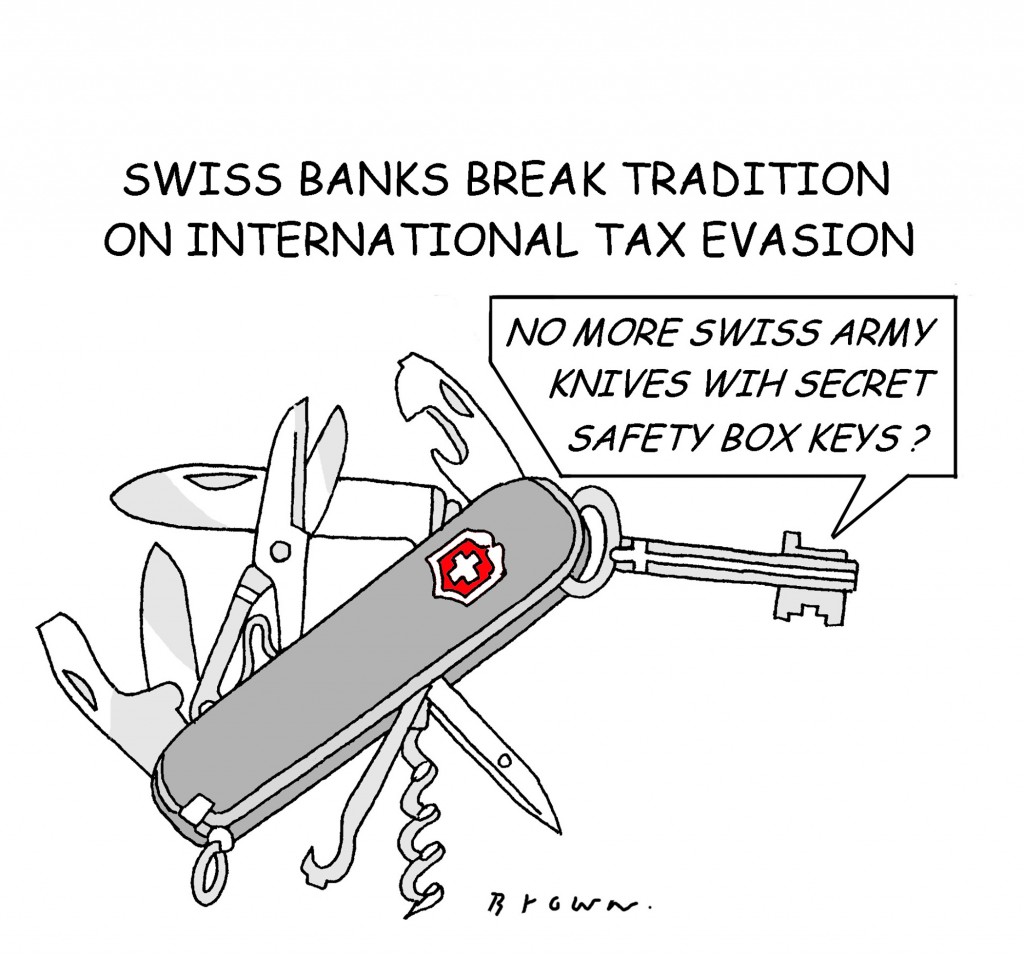Author: Philipp Bircher
Berlin-Berne, we have a problem! Well, not just one, we certainly know that. But there’s one controversial subject that outshines all the others at the moment: the dispute over non-taxed funds of German citizens in Swiss banks. In a nutshell: The German government accuses Swiss banks to be a shelter for German tax offenders. This is mainly due to the perception of Switzerland as a “tax haven” which is based on the country’s legislation allowing banks to keep their customers’ data secret. The differentiation in Swiss law between “tax evasion” and “tax fraud” certainly adds to this view.
Both governments tried to solve the predicament by negotiating an agreement that aims at introducing a so-called “flat rate withholding tax”. This would have allowed Swiss banks to keep their bank secrecy while guaranteeing the German treasury compensation payments of several billion Euros per year. A good deal for both sides you would say? Not quite. The result was outrage in both countries and both governments faced fundamental criticism. German critics, on the one hand, claimed that tax offenders would get away too cheap. So left wing opposition made it clear that they will block legislation. Swiss critics, on the other hand, were heated by Germany’s “law imperialism” and gathered to prepare a referendum against the tax deal.
What a mess! One of the classic mistakes in a negotiation process is to neglect BATNAs (Best Alternatives to A Negotiated Agreement). BATNA as a negotiation strategy was first described in 1981 by Harvard professors Roger Fisher and William L. Ury in their book “Getting to Yes”. To sum it up: There should always be a plan B. And that is exactly what went wrong here: When entering the negotiations both countries did obviously not take into account the oppositions’ position and had therefore no idea what their Plan B was. So even if there is a common interest and the deal is clearly a win-win for both parties, always keep in mind: no BATNA, no deal!

This blog is a burning topic and couldn’t be more current.
However especially on a political stage, negotations on foreign affair topics naturally bring some pressure in the domestic landscape and therefore a BATNA is hard to justify.